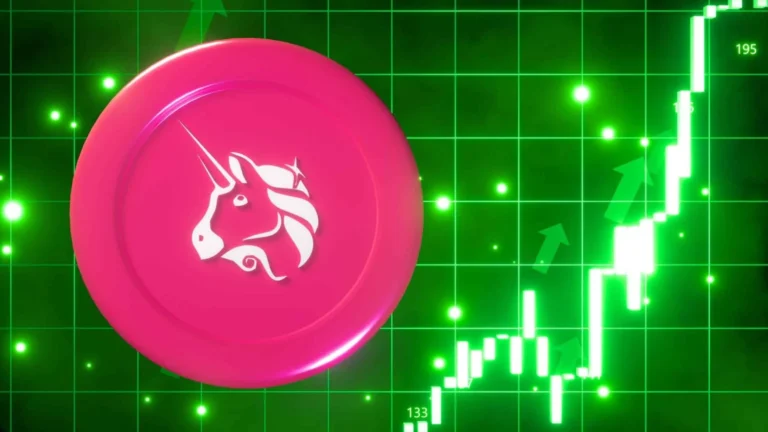Why Traders Are Betting Big on DeFi and What It Means for You
In the ever-evolving world of cryptocurrency, a significant shift is underway. Over the past few days, DeFi (Decentralized Finance) tokens like Uniswap (UNI), Aave (AAVE), and Maker (MKR) have surged by over 30%. This rise has many traders excited, especially as they believe that the future of DeFi will be much “friendlier” under the incoming presidency of Donald Trump. But what does this mean for you as someone learning about crypto and finance? Let’s break it down.
The Key Idea: “Value Accrual Mechanisms” and the SEC
For the past few years, many DeFi projects have struggled to implement “value accrual mechanisms” for their tokens. Simply put, a value accrual mechanism means finding a way for tokens to generate real, tangible value over time (like earning money from fees) for their holders. This could transform tokens from being just “governance tokens” (used mainly to vote on protocol changes) into actual utility tokens (which can generate income and have more investment appeal).
The reason this hasn’t happened? The U.S. Securities and Exchange Commission (SEC) has been keeping a close eye on DeFi projects, and many companies were scared of facing enforcement actions. For example, Uniswap Labs, which runs one of the largest decentralized exchanges, has been under investigation by the SEC. The fear of regulatory crackdowns has slowed innovation in this area.
The Role of Trump’s Presidency
So, why is this all changing now? Donald Trump’s recent victory in the 2024 U.S. presidential election has sparked a wave of “regulatory optimism”. Traders believe that under Trump’s administration, the regulatory environment for DeFi could be more relaxed, potentially encouraging more growth and development. This could lead to significant changes, like DeFi protocols being able to create value for their tokens without fear of SEC backlash.
Key people in the industry, like Charlie Sherry from BTC Markets, are speculating that with Trump in power, we could see a friendlier environment for DeFi projects. If the SEC becomes less aggressive, DeFi firms could finally implement these “value accrual mechanisms,” making their tokens more appealing to investors.
The Future of DeFi Tokens
Here’s where it gets exciting for investors: DeFi projects are already starting to explore ways to give their tokens real value. For example:
- Aave is working on a “fee switch” that would allow part of the fees from its lending and borrowing protocol to be passed to AAVE tokenholders. This would transform AAVE from just a governance token into a utility asset, giving it real investment potential.
- Uniswap is launching a new layer called Unichain, which will direct a portion of its fees to UNI tokenholders. This could similarly turn UNI into a more valuable asset, moving beyond its current use as a voting tool.
And it’s not just these two. Lido (LDO), Ethena (ENA), and other tokens are expected to implement similar value-boosting mechanisms in the near future.
Why This Is Important for You
Understanding these developments is crucial for anyone interested in the future of finance and cryptocurrency. DeFi is all about decentralization—putting power and control into the hands of users rather than big institutions. The potential to earn real value from tokens (like earning fees) opens up new opportunities for investors, especially those who believe in the future of decentralized systems.
If you’re learning about crypto, these changes could shape the future of the space. DeFi projects that can create real utility for their tokens will likely attract more investors, pushing the value of these assets higher. Key terms you should remember here are:
- DeFi (Decentralized Finance): A system that allows people to borrow, lend, trade, and invest without centralized control.
- Value Accrual Mechanism: A way to make tokens generate actual value (like through fees) for holders.
- Governance Tokens: Tokens that allow holders to vote on protocol changes.
- Utility Tokens: Tokens that have real-world use, often generating value for holders.
Conclusion
In short, the rise of DeFi tokens amid expectations of a “friendlier” regulatory environment under Trump could signal a major shift in the industry. The ability to earn real value from holding DeFi tokens could make them far more attractive to investors, leading to increased growth in the sector. For anyone looking to build knowledge in this field, understanding these changes is key to positioning yourself for future opportunities in crypto. This isn’t just about trends—it’s about the future of finance.



